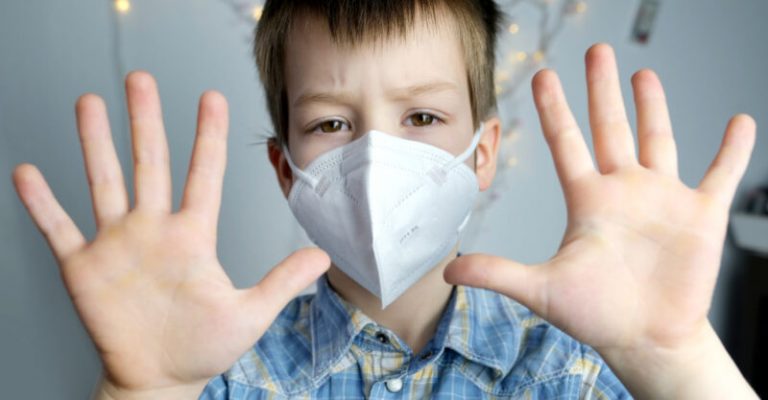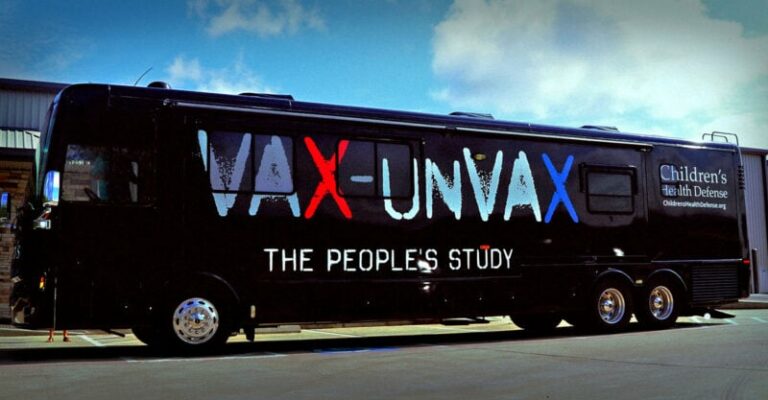‘Tragic’: CDC adds original COVID mRNA vaccine to children’s schedule despite known harms
The Centers for Disease Control and Prevention on Thursday added the mRNA vaccine COVID-19 with two doses of the primary series to the routine childhood and adult vaccination schedule, formalising the unanimous recommendation issued by the Agency’s Vaccine Advisory Committee in October 2022.
Brenda Baletti, Ph.
The Centers for Disease Control and Prevention (CDC) on Thursday added the COVID-19 vaccine to its routine childhood and adult vaccination programme .
Although the CDC does not have the authority to set requirements on its own, the agency’s vaccination schedule is the official guide for state and local public health officials who set the rules for which vaccines are required for school attendance.
The schedule is also the basis for vaccination recommendations made by most physicians.
“Given all we have learned over the past two years about the dangers and ineffectiveness of the COVID-19 vaccine, it is appalling that the CDC is now recommending this vaccine as a routine vaccination for children,” Mary Holland, President and Chief Counsel of Children’s Health Defense (CHD), told The Defender.
“While this is not surprising given the agency’s coverage, it is tragic nonetheless,” she added.
Thursday’s move formalised a recommendation by the agency’s Vaccine Advisory Committee, which voted unanimously (15-0) on 20 October 2022 to recommend the inclusion of the COVID-19 vaccine for children as young as 6 months of age in the new child and adolescent vaccination programme.
Under the new guidelines, CDC recommends a primary series of two doses of the monovalent mRNA Moderna or Pfizer-BioNTech COVID-19 vaccine followed by a booster dose of the bivalent vaccine for healthy children aged 6 months to 11 years.
For healthy persons aged 12 years and older, it recommends receiving two doses of Moderna, Pfizer or Novavax followed by a booster dose of bivalent vaccine.
All COVID-19 vaccines given to people under 18 years of age in the US are Emergency Use Authorised (EUA) products. The US Food and Drug Administration (FDA) has fully approved Pfizer’s COVID-19 Comirnaty vaccine for people over 12 years of age, but Comirnaty is not available in the US – which means that all children who receive the Pfizer vaccine receive the EUA product.
At a congressional hearing on Wednesday on the Biden administration’s response to COVID-19, Republican Dan Crenshaw (R-Texas) asked CDC Director Dr. Rochelle Walensky why the CDC broke its own norms and included an EUA vaccine in the childhood vaccination programme for a disease that poses very low risk to children and for which the vaccine presents many potential side effects, without preventing transmission.
Ms Walensky replied:
“The only reason that the ACIP [Advisory Committee on Immunization Practices] of the CDC recommended that COVID-19 be included in the paediatric vaccine programme was because it could be included in our ‘Vaccines for Children’ programme.
“It was the only way our uninsured children could have access to vaccines … That was the reason we put it in there.”
Data collected by the CDC through its Vaccine Adverse Event Reporting System(VAERS) and a growing number of other sources point to serious health risks associated with vaccinating children with the COVID-19 vaccine.
“COVID vaccines have not been proven effective or safe for children,” CHD argued in an amicus brief filed last year in Louisiana. “The benefits to children are negligible, while the risks – including the risk of potentially fatal heart damage – are ‘known’ and ‘serious,’ as the FDA has acknowledged.”
Other changes to the children’s programme include the addition of PVC15, a pneumococcal conjugate vaccine to protect against pneumococcal bacteria, which has only recently been approved for children; updated influenza and hepatitis B vaccination guidelines; and new recommendations for measles, mumps and rubella (MMR) and polio vaccination.
The CDC now recommends an additional dose of MMR vaccine in places where there is a mumps outbreak. It also recommends an additional poliovirus vaccine for children and adults if new polio cases occur.
This would mean that the number of recommended injections in the childhood vaccination programme would increase from 54 to 72 during childhood, between 6 months and 18 years of age, The Defender reported last year.
CDC schedule shields drug companies from liability for vaccine injuries
Vaccine manufacturers are not liable for injuries or deaths associated with EUA vaccines, but they can be held liable for injuries caused by a fully licensed vaccine – unless that vaccine is added to the CDC’s childhood vaccination schedule.
Read the full article on The Defender
Suggest a correction







